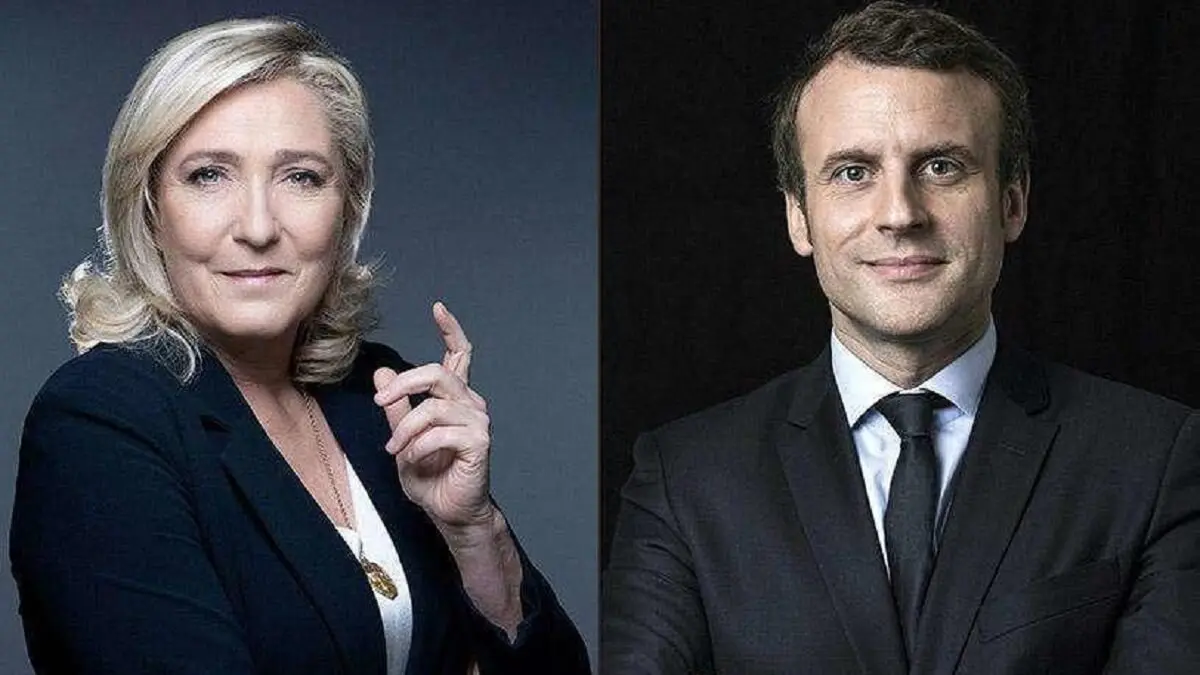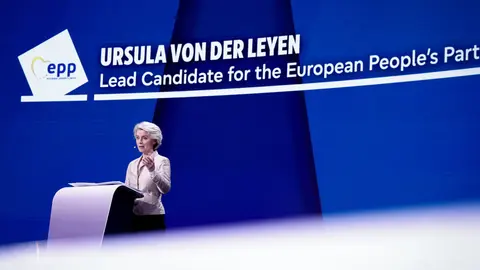The radical right shakes up the EU map

As if it were a germ that in each election continues to position itself better and better as the centre weakens. In the recent elections to renew the European Parliament, and thus the European Commission and other governing bodies, the radical right parties continued to gain more seats. Hence, a wider range to influence Europeanist policy.
In preliminary data we know that the European People's Party won with 186 seats and everything points to the fact that it will manage to keep the coalition it already had in the European Parliament if it joins again with the Renew Europe Group that has 79 seats, together they would be 265 seats compared to the 224 of the sum of the different groups of the left including the Socialist and Democrat Party with 135 seats and The Greens with 53 seats plus the left with 36. The radical right parties have managed to grab 20% of the seats, previously they had 18.4%, now they will grow to 130, but there is one group registered as Other which got 55 seats and one more listed as Unattached which will have 46 seats of which it is not known how many MEPs might also have some ideological alignment on various programmes and policies of the radical right.
In the last three five years, the European elections have been experienced as a real battle for the survival of the European Union (EU), despite its 67 years of existence, one would think that in its full maturity there would be no threats to its consolidation. But there are.
Since it was signed on 25 March 1957, when the Treaty of Rome became a cornerstone for creating the framework that is today the EU with its 27 member countries, this great effort for peace, unity, cooperation and the joint pursuit of progress has not been free of discordant voices, especially nationalists and ultra-nationalists who, rather than adding to it, seek to break unity and lock their respective nations back into their more local interests.
And as the generational change advances and the transmission of values of the baby boomers dies and generation X becomes disenchanted and votes less and less, the millennials and generation Z, who are far removed from the impact of the First and Second World War and the movements of 1968, are participating more actively, showing their disagreement with more centrist policies and in exchange giving more support to parties with a radical and nationalist ideology of rupture.
France, which has been the historical cradle of the great liberal and social demands, is the first great victim of this schism that the advance of the radical right is provoking.
President Emmanuel Macron surprised everyone by dissolving the National Assembly. Macron does not have it all his own way, and with the political forces in such a state of disarray, getting his legislative initiatives through is a devilish task.
With this extremely risky political decision, Macron is putting his neck on the line and not only that, if it doesn't work out, he would be opening the big door in 2027 to the far-right leader Marine Le Pen, of the National Rally.
According to preliminary results, in France, National Rally would have obtained 31.5% of the votes cast by French citizens in these European elections.
While President Macron's socioliberal Renaissance Party, which is socioliberal, would only have won 14.7% of the votes. In other words: a real political catastrophe in France, which is heading towards ungovernability; thus, in the European Parliament, Macron's party will have 14 seats and Le Pen's party 31 MEPs.
Macron, who is not a political chameleon like the Spanish president, the socialist Pedro Sánchez, with his bold political moves from which he manages to emerge, intends, with the dissolution of the National Assembly, that in the legislative elections of 30 June (first round) and 7 July (second round) French citizens will vote for Rebirth and regain control of the National Assembly from the extreme right. In truth, it looks very difficult.
Le Pen is emulating Giorgia Meloni, who in Italy has managed with her radical right-wing party, Brothers of Italy, to become prime minister with a rather sugar-coated image of ultra-nationalism.
In fact, Meloni with her Brothers of Italy was the big winner of the European elections: her party would have won between 26 and 30 per cent of the vote. It would have defeated the Democratic Party and also snatched votes from other radical parties such as the 5 Star Movement, Forza Italia and even Matteo Salvini's League.
The European elections are not only a profound democratic exercise to shape the various forces of political representation in each of the 27 countries to bring their voice and vote to the European Parliament, they are also an internal political thermometer to measure the political strength of each government and its management capacity, and how strong or weak it is in the field of legislative and citizen support.
Another that had already been weakened for months was the prime minister of Belgium, who also joined Macron's discouragement in France and decided to resign: Alexander De Croo had a government of impossibilities supported by a coalition of seven parties, in a country where political understanding is very complicated. His centre-right Open VLD party only got 7% of the vote.
In Belgium, the right-wing, nationalist Neo-Flemish Alliance party N-VA won with 22% of the vote, followed by the far-right Vlaams Belang party with 17.5% of the vote.
And, in Germany, the far right almost won with Alternative for Germany (AfD) coming second with 16.5% of the vote, the German Christian Democrats won, but, with each election, the margin gets narrower while the Social Democrats of Chancellor Olaf Scholz's party won 14% of the vote.
In Austria, the extreme right also won in the European elections: the ultra-nationalist FPÖ party won 27% of the vote, ahead of the ruling Christian Democratic ÖVP party, which would have won 23.5% of the vote. And in Spain, the radical right VOX has become the third political force with 6 MEPs. Practically everywhere they are already rubbing their hands together to govern.
You just have to know how to interpret the sign of the times in the key of the sun: the new generations want a radical change, they feel that the system has failed them. There is a migratory tsunami. There is disenchantment with the economic future: Germany, the locomotive of the EU, has a broken engine and this is a cause for concern, and France is experiencing internal social decomposition under the threat of jihadist terrorism.
There is weariness, pessimism, disenchantment, ostracism and even fear. A mixture of sensations and feelings that among the youngest people, who have little historical memory, is a fire in their hands. These elections are already a watershed.



